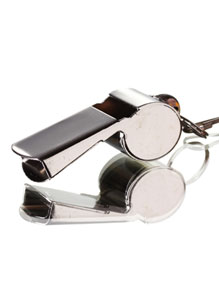
In my organisation, I am responsible for the monitoring of corruption, fraud and wasteful expenditure. However, I have been largely sidelined from fulfilling this function and so am in effect being prevented from doing my job by being given menial work to do instead. What can I do?
Yours
Silenced Whistle
Dear Silenced,
Being sidelined in your organisation may constitute an impropriety in terms of the Protected Disclosures Act (PDA) whether you work in the private or public sector. This will be the case, for example, if you have reason to believe that one of the following is being, or is likely to be, deliberately concealed by the action/inaction of your employer or an employee of your employer:
* the commission of a criminal offence;
* the failure to comply with legal obligations;
* a miscarriage of justice;
* the endangering of the health or safety of an individual;
* damage to the environment; or
* unfair discrimination.
Should you disclose this information in terms of the PDA to a legal adviser or in good faith to your employer or a member of the Cabinet or Executive Council where relevant to your employment, such disclosure would be protected in terms of the PDA.
Disclosure should be made according to the prescribed procedure of your employer or directly to your employer if there is no such procedure. Disclosure can also be made in good faith to, for example, the public protector or auditor-general if you have a reasonable belief that the impropriety falls within matters that are ordinarily dealt with by them and you believe the allegations to be substantially true.
In exceptional cases and where internal disclosure has failed, disclosures may also be made in good faith to external entities such as the media, should you believe the allegations to be reasonably true and they are not made for personal gain.
If you are dismissed on account of your protected disclosure, this would automatically be unfair in terms of the Labour Relations Act (LRA). You can also not be subjected to other forms of occupational detriment such as disciplinary action, suspension, demotion, harassment, being transferred, the refusal of promotion, intimidation and threats. Any of these actions would constitute an unfair labour practice in terms of the LRA and would entitle you to relief at the Commission for Conciliation, Mediation and Arbitration, a bargaining council, the Labour Court or civil courts.
You may have other options in terms of employment law. If you are consistently being sidelined in your organisation and given menial tasks to perform this may constitute a demotion. Being demoted without your consent may constitute an unfair labour practice in terms of the LRA. A demotion does not necessarily entail a reduction in your remuneration. The mere fact that you may still have the same job title and remuneration, does not mean that you have not been unfairly demoted. Our labour courts have found that demotion, as an unfair labour practice, may also follow from a material reduction in your responsibilities and you may therefore claim relief in terms of the LRA.
How you should go about ‘blowing the whistle’ and your remedies in terms of the LRA, should you be dismissed or subjected to occupational detriment will very much depend on your specific circumstances. Please do not hesitate to contact us at Corruption Watch in this regard.
Taking the decision to blow the whistle is not easy. However, employees in your position are often best placed to detect irregular activity early and therefore may fulfil a vital role in the fight against corruption. As Judge Pillay observed in Thsishonga v Minister of Justice & Constitutional Development & another:
“Employees who seek to correct wrongdoing, to report practices and products that may endanger society or resist instructions to perform illegal acts, render a valuable service to society and the employer.”
• This article was first published in Sunday Times: Business Times

